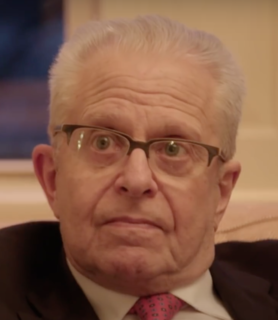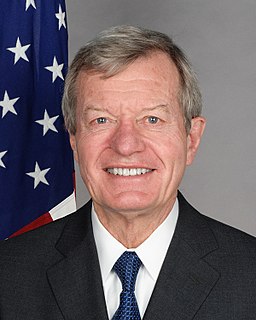A Quote by Patrick Henry
My political curiosity, exclusive of my anxious solicitude for the public welfare, leads me to ask who authorized them (the framers of the Constitution) to speak the language of 'We, the People,' instead of 'We, the States'?
Related Quotes
I have the highest veneration of those Gentleman, -- but, Sir, give me leave to demand, what right had they to say, We, the People? My political curiosity, exclusive of my anxious solicitude for the public welfare, leads me to ask who authorized them to speak the language of, We, the People, instead of We, the States? States are the characteristics, and the soul of the confederation. If the States be not the agents of this compact, it must be one of great consolidated National Government of the people of all the States.
The absence of utopianism in the Constitution, law, and traditional political culture has been ... important in limiting expectations concerning what can be achieved by politics. The history of the last two centuries confirms what the framers of the Constitution understood: that the perfect is the enemy of the good, and the search for unalloyed virtue in public life leads to unalloyed terror.
The power of the state to impose restraints and burdens upon persons and property in conservation and promotion of the public health, good order, and prosperity is a power originally and always belonging to the states, not surrendered to them by the general government, nor directly restrained by the constitution of the United States, and essentially exclusive.
I never did ask more, nor ever was willing to accept less, than for all the States, and the people thereof, to take and hold their places, and their rights, in the Union, under the Constitution of the United States. For this alone have I felt authorized to struggle; and I seek neither more nor less now.
The Constitution does not protect the sovereignty of States for the benefit of the States or state governments as abstract political entities, or even for the benefit of the public officials governing the States. To the contrary, the Constitution divides authority between federal and state governments for the protection of individuals.
The preamble to the Constitution states: "We, the People of the United States, in Order to form a more perfect Union, establish Justice, insure domestic Tranquillity, provide for the common defence, promote the general welfare..." It doesn't say "guarantee the general welfare." And it certainly doesn't say "give welfare benefits to all the people in the country who aren't doing so well even if the reason they aren't doing so well is because they're sitting on their butts in front of the TV".
That, in part, is why the Constitution's framers gave justices life tenure ? to enable them to rule wherever the law and the Constitution led them, without obligation or fear of political reprisal. Former Republican president Gerald Ford recently paid tribute to John Paul Stevens, his only appointee to the Supreme Court, who is also far more liberal than Republicans expected. He has served his nation well, ... with dignity, intellect and without partisan political concerns.
The sovereignty of the States is the language of the Confederacy and not the language of the Constitution. The latter contains the emphatic words. This Constitution and the laws of the United States which shall be made in pursuance thereof and all treaties made or which shall be made under the authority of the United States, shall be the supreme law of the land and the judges in every State shall be bound thereby, anything in the constitution or laws of any State to the contrary notwithstanding
In a very real sense, the Constitution is our compact with history . . . [but] the Constitution can maintain that compact and serve as the lodestar of our political system only if its terms are binding on us. To the extent we depart from the document's language and rely instead on generalities that we see written between the lines, we rob the Constitution of its binding force and give free reign to the fashions and passions of the day.
The Framers of the First Amendment were not concerned with preventing government from abridging their freedom to speak about crops and cockfighting, or with protecting the expressive activity of topless dancers, which of late has found some shelter under the First Amendment. Rather, the Framers cherished unabridged freedom of political communication.
The Constitution, when it says, "We, the people of the United States, in order to form a more perfect union, establish justice, ensure domestic tranquility, provide for the common defense, promote the general welfare, and secure the blessings of liberty to ourselves and our posterity, do ordain and establish this Constitution for the United States of America," meant just what it said without reference to color or condition, ad infinitum.

































